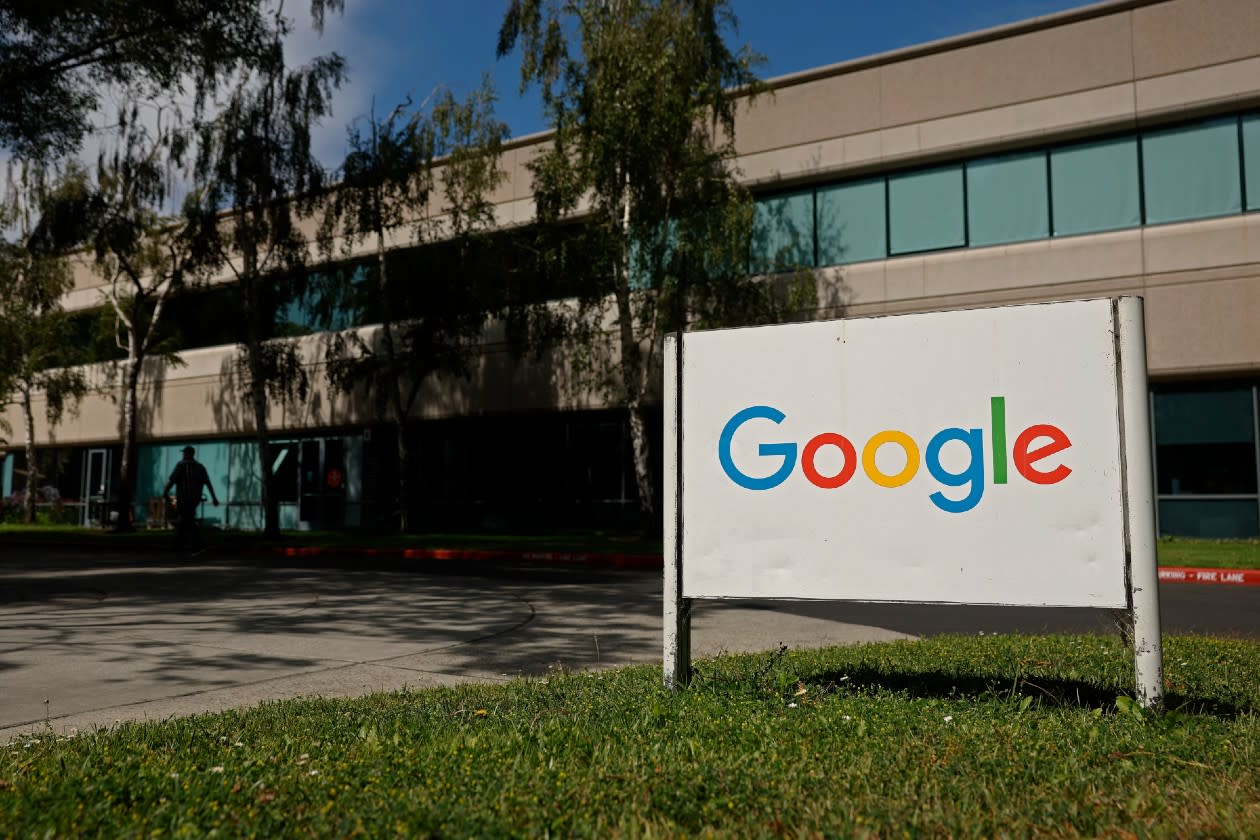Alphabet has received a court ruling on several remedies as part of the longstanding antitrust case brought by the US Department of Justice.
The decision introduces modest pro-competition measures, like banning exclusivity deals (including for AI) and limited data sharing. But the proposed remedies avoid structural changes, allowing Alphabet to keep Chrome and continue paying to have Google as the default search engine on Apple devices.
The shares rose 5.8% in overnight trading.
Our view
Alphabet just dodged a regulatory bullet, with a significant legal overhang now removed. The US court rulings - such as limited data-sharing and curbs on exclusivity deals for Google Search - stop well short of the structural break-up scenarios some had feared.
This is the latest positive step in what’s been a strong year so far for Alphabet, which is slowly proving the doubters wrong. Google Search growth is looking robust, and strong margin expansion is helping the profit lines.
A couple of good quarters don’t fully dispel fears that new entrants like ChatGPT could upend its search dominance, but Alphabet's own AI initiatives are taking shape.
The rise of language models presents both an opportunity and risk for the search business. Google search has long been the gatekeeper to the internet, but competition is heating up, and Alphabet faces a genuine challenge of adapting its search proposition to retain that dominance.
The strength of Google search in recent quarters is a sign that AI is already delivering incremental improvements. AI overviews are rolling out to more users, and the numbers back up commentary that engagement is improving. Advertisers are still getting bang for their buck – which was previously a concern.
There have been question marks on whether tariff and trade drama will impact the ad revenue world, but any impact has been limited so far. Broadly speaking, we think Alphabet looks relatively insulated, though a full-scale recession would be bad for everyone.
Beyond its dominant search presence, Google benefits from a wide array of high-quality businesses, with its cloud division the key growth engine. Significant infrastructure investment is being made to meet rising demand for computing power, and with demand still outpacing supply, there's a good pipeline of revenue visibility heading into 2026.
It has the cash flows to stomach the increased investment, but over time, it will lead to higher costs passing through the income statement. The expected hit to margins hasn’t come yet, with impressive efficiency improvements doing their job.
Cutting-edge models and unmatched distribution mean Alphabet is poised to dominate if it can execute well. The market had prematurely written the company off in the AI race, a view that looked short-sighted, and we’re pleased to see that starting to shift.
That said, we remain slightly cautious on the valuation side. Whether the recently improved earnings multiple can be sustained depends heavily on how search evolves, and that remains a risk to monitor.
Environmental, social and governance (ESG) risk
The technology sector is generally medium/low risk in terms of ESG, though some segments are more exposed, like Electronic Components (environmental risks) and data monetisers (social risks). Business ethics tend to be a material risk within the tech sector, ranging from anti-competitive practices to intellectual property rights. Other key risks include labour relations, data privacy, product governance and resource use.
According to Sustainalytics, Alphabet’s overall management of material ESG issues is average.
Monopoly and market dominance concerns are a key regulatory risk. The recent ruling on a case brought by the US Department of Justice was favourable, but it remains the subject of antitrust investigations in several countries. Alphabet’s management of data handling is strong, aided by its deep pockets. But this remains a key risk to monitor in the evolving landscape of AI.
Alphabet key facts
All ratios are sourced from LSEG Datastream, based on previous day’s closing values. Please remember yields are variable and not a reliable indicator of future income. Keep in mind key figures shouldn’t be looked at on their own – it’s important to understand the big picture.
Article image credit: Justin Sullivan / Getty Images.
This article is not advice or a recommendation to buy, sell or hold any investment.No view is given on the present or future value or price of any investment, and investors should form their own view on any proposed investment.This article has not been prepared in accordance with legal requirements designed to promote the independence of investment research and is considered a marketing communication.Non - independent research is not subject to FCA rules prohibiting dealing ahead of research, however HL has put controls in place(including dealing restrictions, physical and information barriers) to manage potential conflicts of interest presented by such dealing.Please see our full non - independent research disclosure for more information.


